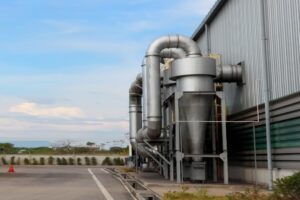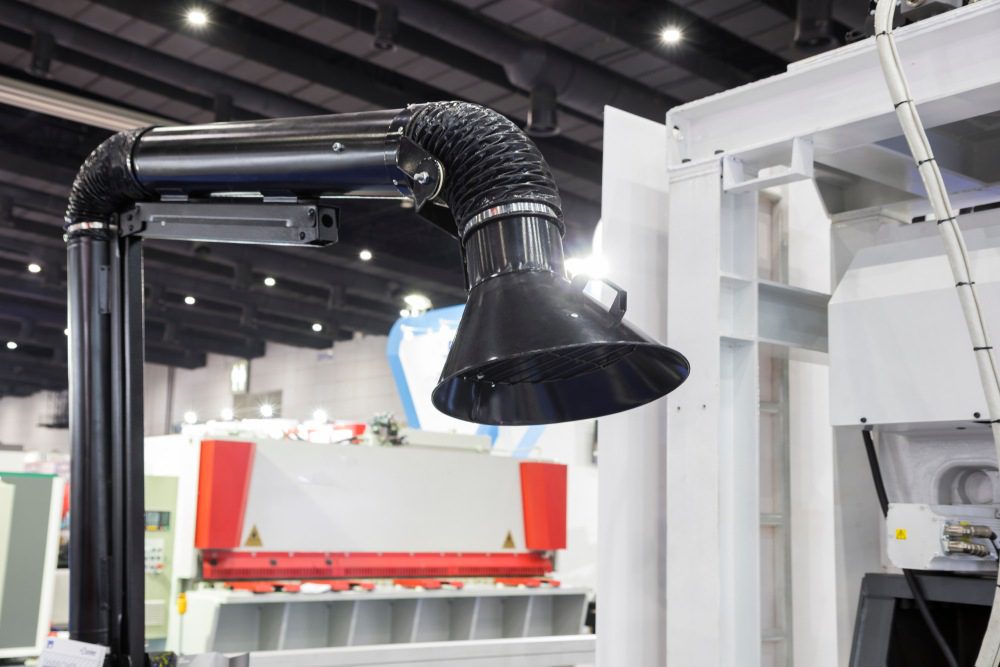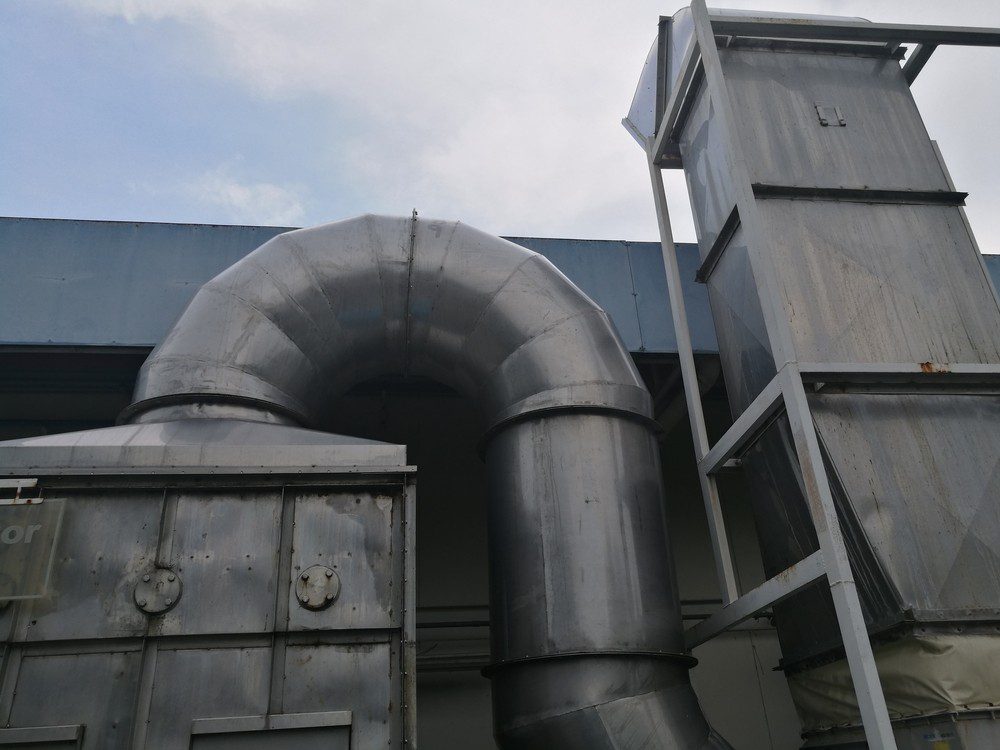Dust particles result from disintegration processes like crushing, impact, and grinding. Often, many individuals fall into the temptation to blow off the dust and not bother about it.
However, industrial manufacturers know that even little portions of dust can be problematic. Besides, they understand how a dust collection system can help reduce air pollution, and improve fire protection measures.
By improving the air quality, dust collection systems facilitate healthier work conditions. Before understanding the benefits of a dust collection system, you’ll need to know what it is and how it works. Read on to learn why dust collection is important to heavy manufacturing.
What Is a Dust Collection System?
Dust collection systems are industrial machines that help remove dirt, debris, gasses, chemicals, and dust from the air. By doing so, dust collectors help provide your manufacturing plant with better air quality.
How a Dust Collection System Works
 A dust collector sucks air in from a particular application and processes it through a filtering system. This leads to the atmospheric particulate matter being deposited into a collection area.
A dust collector sucks air in from a particular application and processes it through a filtering system. This leads to the atmospheric particulate matter being deposited into a collection area.
Afterward, the purified air gets directed back to the facility or released into the environment. Still, the filtering structure of dust collection systems varies from one plant to another. This depends on the dust materials produced.
Depending on your needs and usage, your dust collection system parts will vary in size, capacity, and material. Even so, most of these systems function under the same principles and use similar parts. These parts include:
- Exhaust hoods that catch dust
- Ducts that transport the dust particles to a collection area
- Collectors that remove the dust from the air
- Fans and motors that produce exhaust power
So, what are the benefits of dust collection systems?
The Benefits of Dust Collection in the Heavy Industry
There are many merits of dust collection systems for industrial manufacturers. These benefits include:
Improved Health and Safety
You risk affecting your lungs when you breathe in air contaminated with debris, dirt, dust, chemicals, and gasses. Besides, accumulating these materials on or close to your equipment can pose a significant risk to fire outbreaks.
Two options for explosion and fire protection are active and passive systems. An active dust collection system will be capable of detecting sparks or fire automatically. Then, the system releases a chemical to ensure fire protection throughout the collection system.
A passive system may refer to the installation or expansion of an explosion vent. So, the system directs all the pressure and flames away from the areas where your workers are and other combustibles.
Through combustible dust collection, these harmful substances get cleansed from the air. This leads to better air quality, thus good health. By removing the accumulating contaminants, you also increase your fire protection.
Increased Productivity
When dust, dirt, and debris gather on your manufacturing equipment, they make their way inside. Unfortunately, this will interfere with the mechanical operation of your equipment. As a result, you’ll have machines that work slower than normal or broken equipment.
When you have compromised machinery, you’ll need to seek mechanical repairs and attention more often than you should. A dust collection system can help do away with these risks, allowing your machines and equipment to operate at top performance.
Increased Product Quality
When dust and dirt get released into the environment, they can collect on products throughout your manufacturing process. Unfortunately, these particles will negatively affect the quality of your finished products.
Dust collection helps to remove the dust, fumes, and smoke available in the air. So, you keep the contaminants away from your finished goods. This improves the quality of your products and enhances your customer satisfaction.
Meet Compliance Regulations
Today, you’ll find many laws, rules, and regulations that guide your workplace safety. Among these compliance regulations are those related to the air quality and the environment. For instance, OSHA guidelines aim to enforce workforce safety rules and regulate workers’ exposure to these harmful contaminants.
Other agencies that enforce workplace safety include Environmental Protection Agency (EPA) and the National Fire Protection Association (NFPA). If your manufacturing plant doesn’t mind poor air quality, you risk getting fined heavily.
Also, you risk creating potential health hazards that can affect your employees and the reputation of your factory. Dust collection will help you abide by these laws and regulations, avoiding hefty fines.
Motivated Employees
Poor air quality in your factory environment is undesirable and will make your employees suffer. Therefore, your staff becomes unmotivated and unhappy. Besides, they may start seeking employment from your competitors. Employees who lack motivation won’t perform their duties to the expected standards. Besides, high employee turnover can become costly for your factory.
Dust collection will help maintain the air clean and healthy in your factory environment. That way, you boost the morale of your staff. So, you experience high employee retention. Also, you experience increased productivity within your manufacturing facility.
Dust Collection in Heavy Industry
 As outlined above, a dust collection system in your factory has many benefits. Industrial manufacturers face the challenge of recruiting and retaining skilled welders.
As outlined above, a dust collection system in your factory has many benefits. Industrial manufacturers face the challenge of recruiting and retaining skilled welders.
So, if the work environment is full of dust and harmful fumes, workers will find it unhealthy to work for you. Ensure you maintain a safe and healthy workplace to attract and retain the best staff.
Contact Lindberg Process Equipment today to learn more about dust collection systems for heavy industry.





